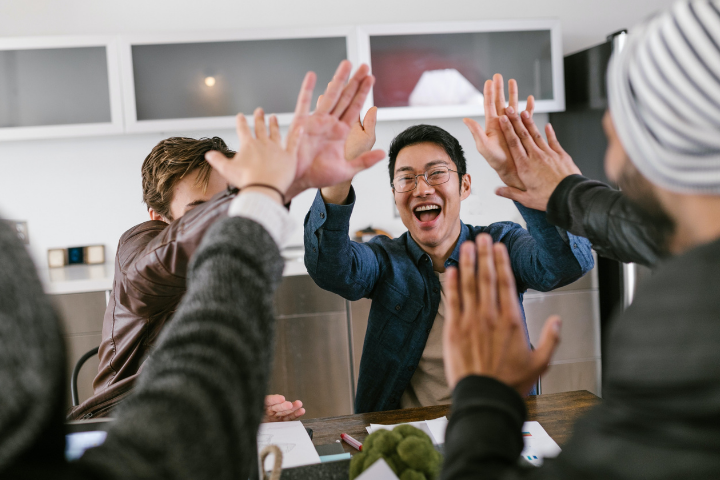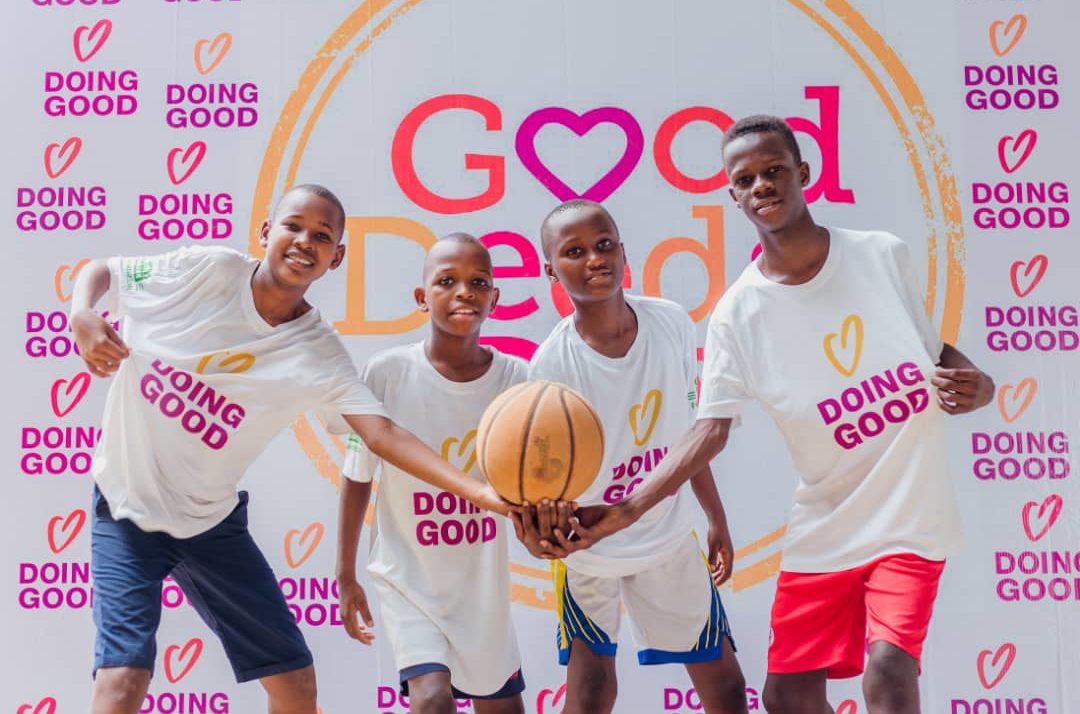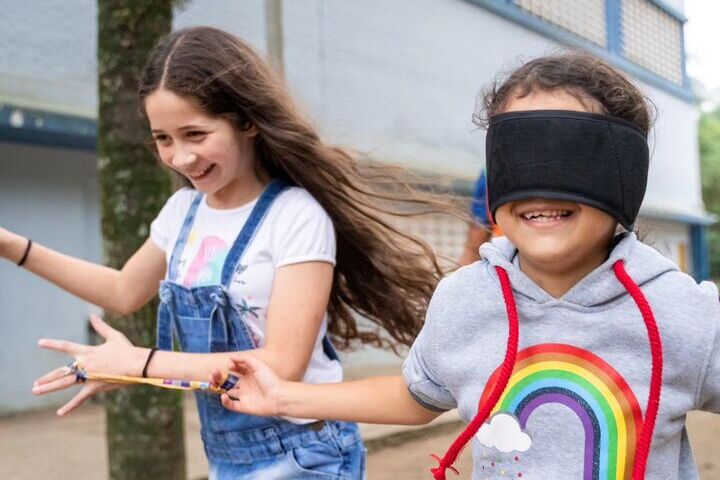
In the first part of this article series dedicated to education-focused projects executed for Good Deeds Day 2023, we delved into and concluded that volunteering functions as a variant of non-formal education. The activities undertaken in this context serve to educate and train individuals beyond the formal academic realm. This underscores the concept of non-formal education, distinguishing it from formal education which operates within the confines of the school system.
During this year’s DBA festivities, a substantial portion of the activities across Latin America zeroed in on Sustainable Development Goal #4: Quality Education. This goal is designed to ensure inclusive, equitable, and high-quality education while promoting lifelong learning opportunities for all.
In the article titled “Non-formal Education and Volunteering on Good Deeds Day 2023 in Latin America,” we gleaned insights about non-formal education-oriented initiatives conducted in Chile, Cuba, Ecuador, Mexico, Paraguay, and Venezuela. In this instance, we will delve into and learn from projects addressing the same theme across ten other nations in the Latin American region.
Brazil: Uniting the Boa People Gathering
In this South American nation, Atados, the coordinator of DBA, embarked on a mission to extend the initiative to various cities and regions, thereby fostering a nationwide movement. This endeavor was inaugurated in Bahia with a gathering that convened seventy-nine local managers of social projects. During this event, these individuals collaborated and discussed project concepts to commemorate DBA 2023.
In this blog article, we delve into some of the projects executed during Good Deeds Day 2023 in Latin America. These initiatives not only educate by virtue of the volunteering aspect but are also directly linked to the non-formal educational progression of the participants. Thus, they distinctly emphasize non-formal education.
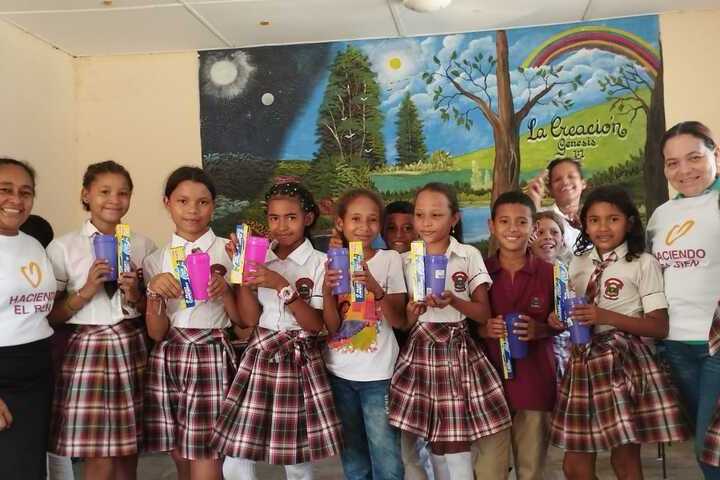
Collaborating with the Lions Club, the volunteers from the Universidad del Magdalena, serving as DBA coordinators in the country, organized a session of informal education for students at a community school. This session emphasized the significance of oral health, covering topics such as the implications of orofacial pain, mouth sores, infections, cavities, and periodontal diseases.
As a component of the project, all participants received oral hygiene kits. This provision is rooted in the understanding that maintaining good oral health is pivotal for overall well-being and a high quality of life.
erie, and empathy were translated into action through play and shared experiences.
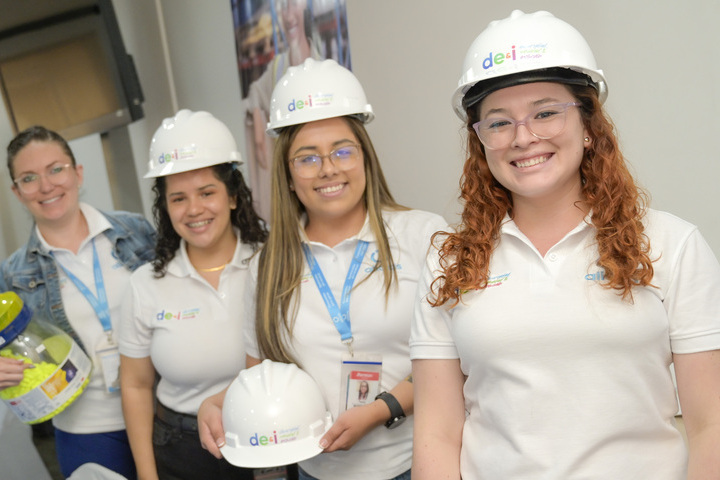
Conceived as an empowerment initiative, “Inspiring Girls” engaged twenty-three students from Colegio Científico de Costa Rica- Alajuela Campus. Collaborating with Durman by Aliaxis LATAM volunteers, the event featured these professionals sharing their journey of studying STEM careers and their subsequent accomplishments in these fields.
The primary aim of the endeavor was to ignite inspiration and instill empowerment within the students, encouraging them to persist in pursuing careers of this nature.
Durman by Aliaxis is committed to propelling the Diversity, Equity, and Inclusion initiative with a specific focus on gender equality. This aspiration positions the company as a pioneering force within the sector, simultaneously generating a profound impact and wielding influence over forthcoming generations of women.
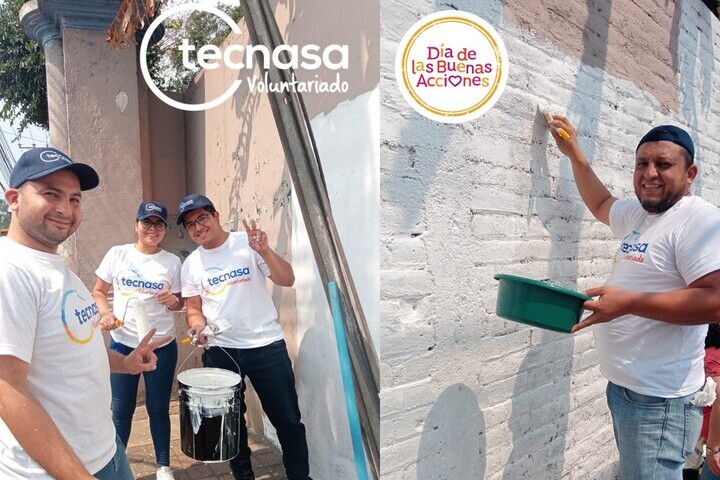
For the first time, El Salvador united with Día de las Buenas Acciones en Latinoamérica through an initiative aimed at enhancing the infrastructure of the Santa Tecla Special School.
In this endeavor, volunteers from the company took on the task of painting the school’s external facade. Their efforts were geared towards enhancing the building’s conditions to create a conducive environment for accommodating children with special abilities in the vicinity.
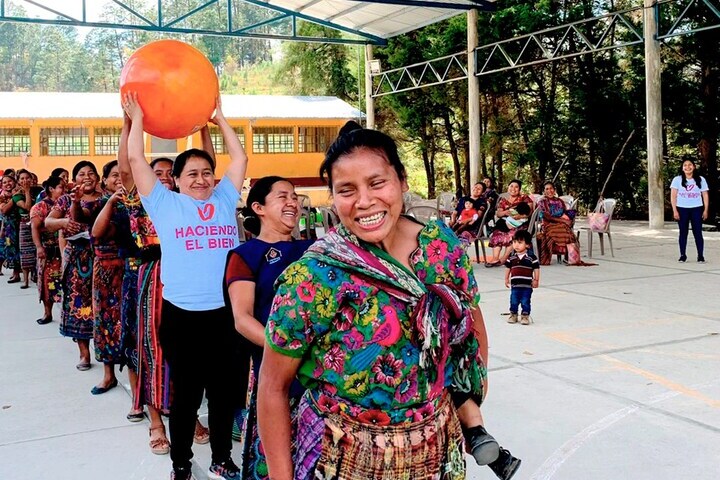
Puente, a collaborative partner of Día de las Buenas Acciones Guatemala, orchestrated a workshop intended for women leaders hailing from diverse rural communities across the nation. These leaders are engaged in efforts centered on early childhood development, with a particular focus on counteracting chronic malnutrition. This undertaking, constituting non-formal education, was designed to augment the well-being of children in these rural areas.
It’s important to emphasize that within this country, a staggering 49.8% of children grapple with chronic malnutrition. This statistic positions Guatemala as the leading nation in Latin America and the sixth globally when it comes to child malnutrition. Therefore, initiatives like this hold significant potential to foster positive transformation.
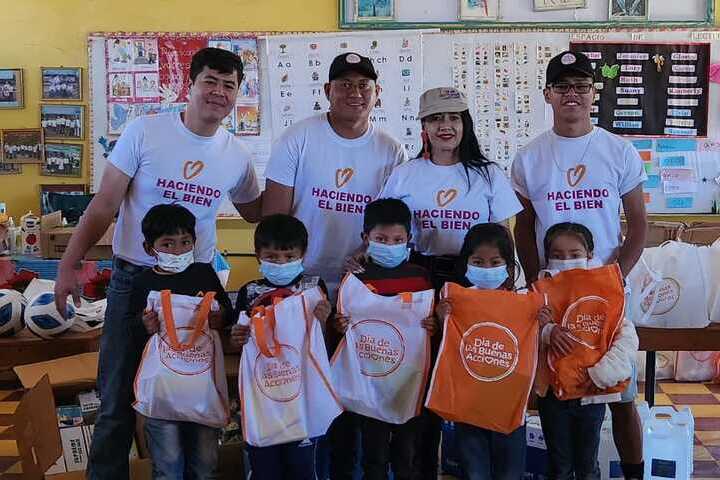
In Honduras, the national coordinator of Buenas Acciones Honduras launched Good Deeds Day with an initiative that brought benefits to the rural educational community of the Mariano Torres Educational Center.
The prime objective of this endeavor was to fortify educational capabilities by providing didactic materials for instructional purposes and donating school kits termed as “DBA School Kit.” These kits were distributed to all students of the school. The “DBA School Kit” is designed to encourage the use of eco-friendly and recyclable materials, aiming to foster environmental consciousness not only among students but also teachers and parents.
Furthermore, donations included biosafety equipment, recreational games, and soccer balls, with the aim of promoting sports activities.
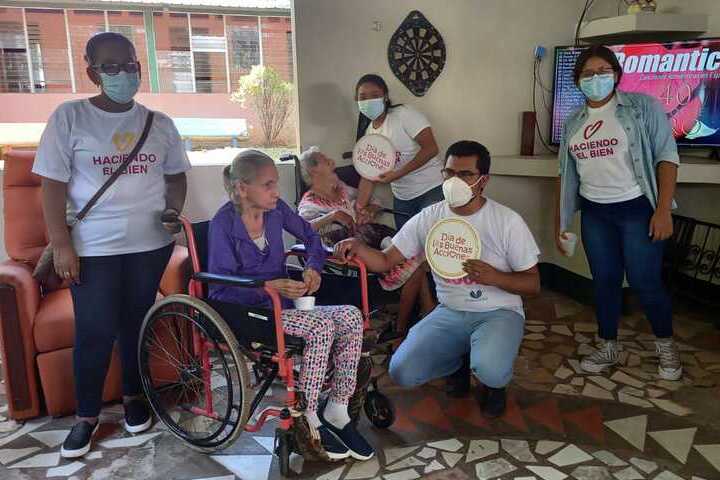
Functioning as the national coordinator of DBA, Universidad del Valle institution undertook a total of sixty-six initiatives to commemorate Good Deeds Day 2023.
Among these projects, a group of System Engineering students orchestrated a visit to an elderly care facility. During their visit, they engaged in shared activities that brought joy and also contributed by donating essential supplies like food and hygiene products.
This endeavor serves as an illustrative instance of blending formal education with non-formal education. Through this initiative, students from an academic establishment immersed themselves in volunteering, a prominent form of non-formal education in contemporary times.
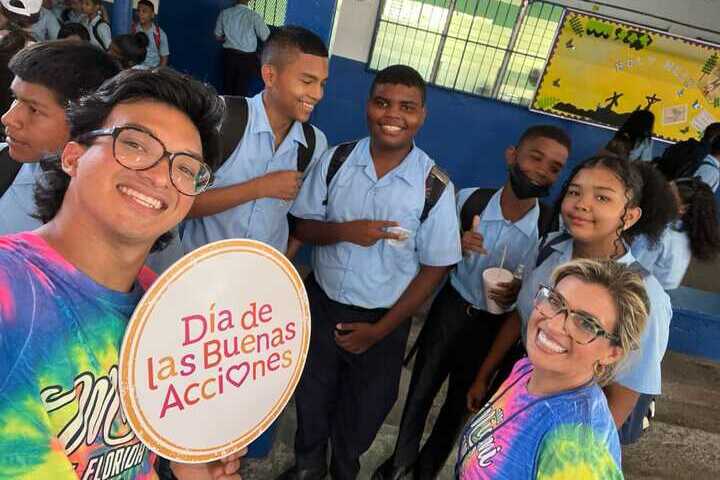
Through the social responsibility initiative titled “A Company, a Classroom,” the Asociación de Amistad Argentino Panameña enhances the infrastructure and educational quality of public schools situated in economically disadvantaged regions. This effort facilitates collaboration between the private and public sectors, aiming to empower students to realize their full potential.
At present, the project is concentrated on three schools situated within the Omar Torrijos Corregimiento in the District of San Miguelito, Panama.
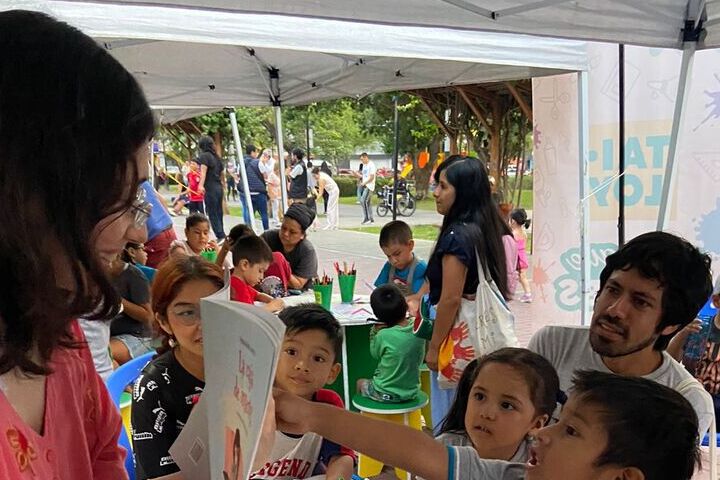
Marking Good Deeds Day 2023, Sembrando Cultura organization orchestrated a storytelling event that serves to promote reading, culture, and the imparting of values while nurturing interpersonal bonds through non-formal education.
Storytelling is a captivating and enjoyable practice in which the narrator directly engages children with well-crafted tales, employing language suitable for their comprehension. This activity carries a plethora of proven advantages: it encourages children to visualize the narratives they hear, thereby fostering their imagination, curiosity, and creativity. Moreover, it catalyzes emotional communication between children and adults, who mutually immerse themselves in the stories, forming a heartfelt connection and sharing a delightful experience. Additionally, stories serve as a conduit to instill moral values in young minds.
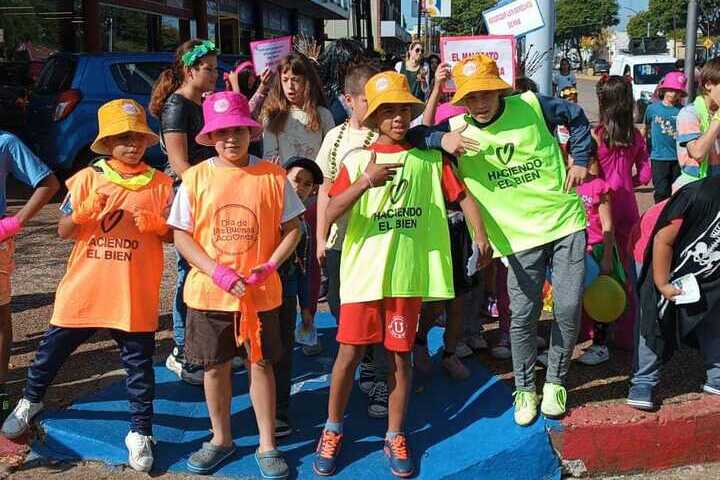
In the Salto city, Uruguay, the children’s club “La Tablada” organaized a March in Defense of Children’s Rights, wherein over two thousand students hailing from local schools partook in a spirited march to champion and safeguard their rights. Brandishing banners and wearing reflective vests, their aim was to engender awareness regarding the critical importance of safeguarding and advocating for the rights of the young.
This club operates in alignment with the comprehensive educational approach called the “La Tablada” multi-educational method. This approach is founded on five educational methodologies that are interrelated and synergistic: Project-based learning, Game-based learning, Learning and solidarity service, Cooperative Learning, and the Scout Method. Through these approaches, the club undertakes endeavors such as formulating environmental projects, engaging in civic interventions, and addressing human rights and the rights of children and adolescents, among other focal points. This method vividly underscores the advantages and learning outcomes that stem from non-formal education.
To get a better grasp of this new method, take a look at an article we’ve posted on our blog about it.
To discover more about Good Deeds Day, visit the website where you can explore various project ideas.


